Jordan, Louis: selected sides, Soundies, and short and feature film songs, 1941-1950
____________________________________________
All recordings on this page are by Louis Jordan and his Tympany Five unless otherwise noted. In Soundies and short films showcasing the band released during the years 1942-1945, as well as in the performance of “Deacon Jones” in the 1944 feature film Meet Miss Bobby Sox, there are always five members in the band shown performing the song, including Jordan.  However, in the 1946 feature film Beware (see photo directly above) the band seen performing “Beware, Brother, Beware,” and “Salt Pork, West Virginia” has seven members, Jordan plus six others, while the band credited as Louis Jordan and his Tympany Five (at IMDB and Wikipedia) in the 1947 film Reet, Petite, and Gone features Jordan and five other members (no second saxophonist).
However, in the 1946 feature film Beware (see photo directly above) the band seen performing “Beware, Brother, Beware,” and “Salt Pork, West Virginia” has seven members, Jordan plus six others, while the band credited as Louis Jordan and his Tympany Five (at IMDB and Wikipedia) in the 1947 film Reet, Petite, and Gone features Jordan and five other members (no second saxophonist).
In the photo at right — where I’m guessing the drummer stands between Jordan and the other saxophone player — and in the one below, with the band name Louis Jordan “T6” on the bass drumhead, in each case the band includes Jordan plus six other musicians.
(above) The Tympany Five evidently became the Tympany Six, or “T6,” for awhile at some point. In 1951 Jordan put together a big band but returned to the Tympany Five format within a year.
1941
I’m Gonna Move to the Outskirts of Town (Casey Bill Weldon, Roy Jacobs, Andy Razaf) — recorded by Louis Jordan & his Tympany Five on 22 November 1941; issued in December 1941 on the 78 rpm 10″ single Decca 8593, as the B-side of “Knock Me a Kiss”
According to the Louis Jordan Biography at musicianguide.com, the recording charted in January 1942. Second Hand Songs lists only one previous recording, by Casey Bill Weldon, in 1936.
.
Casey Bill Weldon — 1936 recording under the title “We Gonna Move (to the Outskirts of Town)”
.
From the “Early 1940s” section of the Louis Jordan Wikipedia page:
Sessions in July 1942 produced nine prime sides, allowing Decca to stockpile Jordan’s recordings as a hedge against the American Federation of Musicians’ recording ban, which was declared the same month. The ban — imposed in order to secure royalty payments for union musicians for each record sold — led to Jordan’s enforced absence from the studio for the next year, and it also prevented many seminal bebop performers from recording during one of the most crucial years of the genre’s history.
“I’m Gonna Leave You on the Outskirts of Town” was an “answer record” to Jordan’s earlier “I’m Gonna Move to the Outskirts of Town”, but it became Jordan’s first major chart hit, reaching #2 on Billboard’s Harlem Hit Parade. His next side, “What’s The Use of Gettin’ Sober (When You’re Gonna Get Drunk Again)”, became Jordan’s first #1 hit, reaching the top of the Harlem Hit Parade in December 1942. A subsequent side, “The Chicks I Pick Are Slender, Tender and Fine”, reached #10 in January 1943.
Their next major side, the comical call-and response number “Five Guys Named Moe”, was one of the first recordings to solidify the fast-paced, swinging R&B style that became the Jordan trademark and it struck a chord with audiences, reaching #3 on the race charts in September 1943. The song was later taken as the title of a long-running stage show that paid tribute to Jordan and his music.
1942
Down, Down, Down (songwriter credits: unknown) — one of the earliest of the 17 Soundies made by Louis Jordan & His Tympany Five; dated 31 December 1942 at LouisJordan.com
.
What’s the Use of Gettin’ Sober (When You’re Gonna Get Drunk Again) (Bubsey Meyers) — recorded on 21 July 1942, and issued on Decca 8645, b/w “The Chicks I Pick are Slender, Tender and Tall.” It was released in November 1942, according to the Louis Jordan discography at markbarrydiscographies.blogspot.com. The Louis Jordan charting singles discography at Wikipedia indicates that Decca 8645 A was Jordan’s first #1 hit on the R&B chart, then known as the Harlem Hit Parade.
.
.
The Chicks I Pick Are Slender, Tender and Tall (Mike Jackson) — recorded on 21 July 1942, and issued on Decca 8645, as the B-side of “What’s the Use of Gettin’ Sober (When You’re Gonna Get Drunk Again)” — According to Wikipedia, the side peaked at #10 on Billboard’s R&B chart in January 1943
.
1943
Five Guys Named Moe (Larry Wynn, Jerry Bresler)
.
1944
G. I. Jive (Johnny Mercer)
Johnny Mercer with Paul Weston and his Orchestra — recorded on 15 October 1943; issued on the 78 rpm single Capitol Records 141, b/w “(I’m Going To Sit Right Down And) Write Myself A Letter (Fred Ahlert)
.
Louis Jordan and his Tympany Five — recorded on 15 March 1944 and issued on Decca 8659, b/w “Is You Is or Is You Ain’t My Baby” — The Louis Jordan and the Tympany Five recording of “G. I. Jive” topped the Billboard R&B singles chart for several weeks in July and August 1944. A recording by Johnny Mercer with Paul Weston and his Orchestra had topped the chart for one week in January of the same year.
.
Footage from the Soundie G. I. Jive (1944)
.
Is You Is or Is You Ain’t My Baby (Louis Jordan and Billy Austin) — recorded on 4 October 1943, and issued on Decca 8659 as the B-side of “G. I. Jive”
.
Deacon Jones (Johnny Lange, Hy Heath and Richard Loring) — The songwriter credits are from IMDb, but the character and a song of this title evidently have a long tradition. Here’s a relevant thread at the folk music forum The Mudcat Cafe: Lyr Req: Deacon Jones.
From the 1944 musical film Meet Miss Bobby Sox
.
1945
Caldonia (Fleecie Moore*) – from a 1945 short film of the same title, directed by William Forest Crouch, which included three other songs Honey Child, Tillie and Buzz Me.
.
Buzz Me (Fleecie Moore*, Danny Baxter)
___________________________
Pages: 1 2











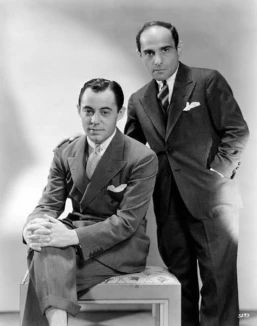

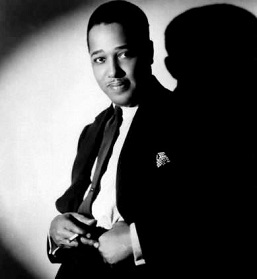


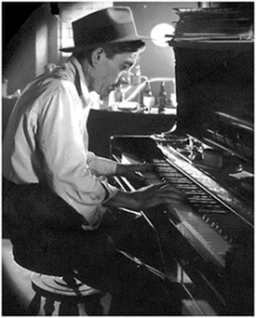
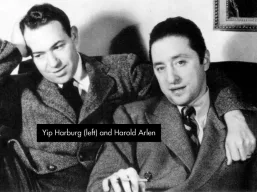
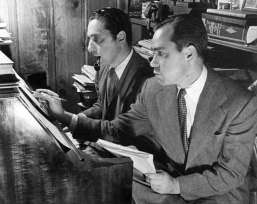



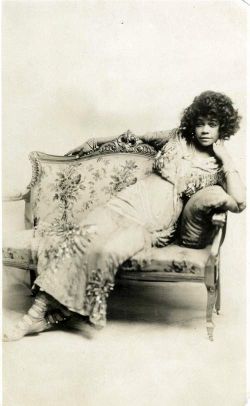





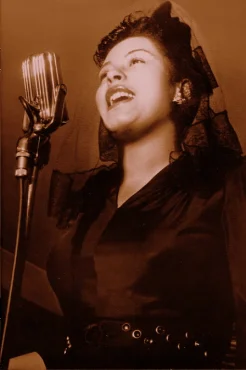




Jan 12, 2012 @ 05:47:27
The Separate Cinema Archive has hi res images taken from the original posters in the collection. Plenty of Louis Jordan material . http://www.SeparateCinema.com
LikeLiked by 1 person
Jan 12, 2012 @ 06:51:06
Thanks, John.
I found a couple of Louis Jordan film posters at the site, here: http://www.separatecinema.com/exhibits_jazzin.html, and on another page. But right clicking was blocked, making copying the images difficult. Also, the images all appear to be small (h=400 pixels), much smaller than what I’m looking for.
LikeLike
May 29, 2014 @ 17:37:26
You must include the 1948 Louis Jordan record, “Run Joe”. It has the chorus chanting, “Louie, Louie, Louie, Louie, Louie” and using Jamaican dialect that were both obvious inspirations for Richard Berry’s 1957 “Louie Louie”, later made famous (or infamous) by the Kingsmen in their rock ‘n’ roll version.
LikeLike